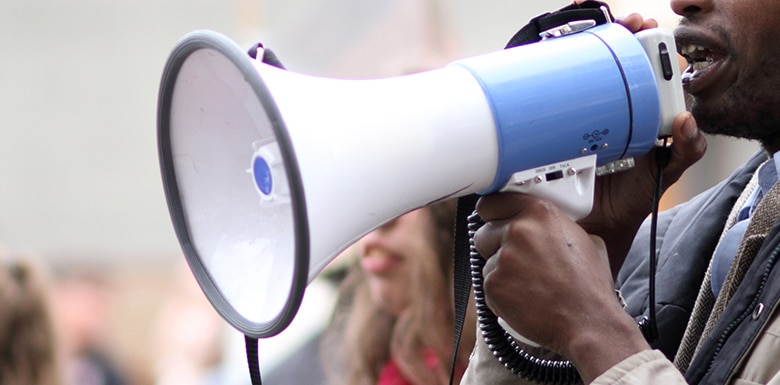Protests in Philadelphia: Your Rights & What To Do if Arrested
Jun 01 2020, by in Criminal Defense, Legal Blog
Philadelphia is no stranger to racial tensions and this weekend’s protests over the death of George Floyd was no different. Often turning violent, demonstrations across the city resulted in hundreds of arrests and nearly 20 injured officers.
While many demonstrations have been largely peaceful like those in area of Broad and Spring Garden and in suburban communities of Bucks and Chester County, the city is now under a strict curfew, with national guard troops in the Philly streets, and U.S. Attorney William McSwain threatening federal charges against people who riot or loot in the Philadelphia area.
Everyone has the right to peacefully protest, but confrontations are happening and tempers are flaring. If you or a loved one are charged with a crime relating to exercising your First Amendment rights, the best thing to do is to stay calm and contact an experienced lawyer.
Call Fineman Defense at (215) 839-9529 ASAP. We can explain the situation, help you get released, and deal with the charges so you get justice.
Know Your Rights as a Protester
The First Amendment protects your right to assemble and express your views. But the police can and will place restrictions on demonstrations. These restrictions are meant to protect citizens and their property, and interfering with these actions can be cause for arrest.
Where Can You Protest?
Protesters are largely protected and allowed to speak freely in most public spaces and property, like streets, sidewalks, and parks. You also have the right to speak in plazas or in front of government buildings, as long as you are not blocking access or interfering with other purposes the property was designed for.
Do I Need a Permit?
You don’t need a permit to protest in city streets or on sidewalks, as long as protesters don’t obstruct traffic. This includes pedestrians or vehicles. If you don’t have a permit, police officers can ask you to move to the side of a street or sidewalk to let others pass.
Private Property
Private property owners can set their own rules for speech on their property. If a protest spills onto private property, you can be charged with trespassing, so it is important to be aware of your surroundings and keep the protest in public spaces.
Can I Take Photos & Video?
When you are lawfully in any public space, you have the right to photograph anything in plain view. This includes federal buildings and the police. Officers should not interfere with recording interactions, but it is known to happen. In these situations, it’s best to calmly assert your right to do so. Private property, on the other hand, can restrict photography or video.
What Can I Say to Police?
Be careful not to cross the line. Despite having the right to free speech, what you say to the police matters. You understandably may want to express anger and frustration at law enforcement, but anything you say can still (and will) be held against you. If you make threats or incite violence this can lead to criminal charges.
What if the Police try to Disperse the Crowd?
Police may not break up a gathering unless there is a clear and present danger of riot, disorder, or other immediate threat to public safety.
If officers issue a dispersal order, they must provide a reasonable chance to comply. This means they must give you sufficient time and a clear, exit path. They cannot order a dispersal and immediately fire tear gas to clear a space. In addition, officers must explain the consequences of failing to disperse before making arrests.
What if the Police Stop or Arrest Me?
Stay calm. Make sure to keep your hands visible. Don’t argue, resist, or obstruct in any way even if they are violating your rights.
Ask if you are free to leave. If the officer says yes, calmly walk away. If you are under arrest, you have a right to ask why, but do not become aggressive. Simply comply and say you were exercising your First Amendment. The best place to deal with charges is after the fact and with help from a lawyer.
Remain silent and ask for a lawyer immediately. Don’t say anything or sign anything without a lawyer.
Can the Police Search or Confiscate Property?
You never have to consent to a search of yourself or your belongings. But if you do explicitly consent, it can affect you later in court.
The police may “pat down” your clothing if they suspect you have a weapon and may search you after an arrest. However, they may not confiscate or demand to view your photographs or video without a warrant, nor may they delete data under any circumstances. They can only order you to cease activities that are truly interfering with legitimate law enforcement operations.
Arrested at a Protest? Call Fienman Defense
Philadelphia is gearing up for another turbulent week. And while this should be a wakeup call for real change in how the legal system treats individuals, you should not have to deal with a mark against your record for taking part in a lawful protest.
If you were arrested in a protest or plan to attend a demonstration and want legal help ready, an experienced and highly skilled defense lawyer is available.
Call attorney Mike Fienman at (215) 839-9529 for a free consultation.


